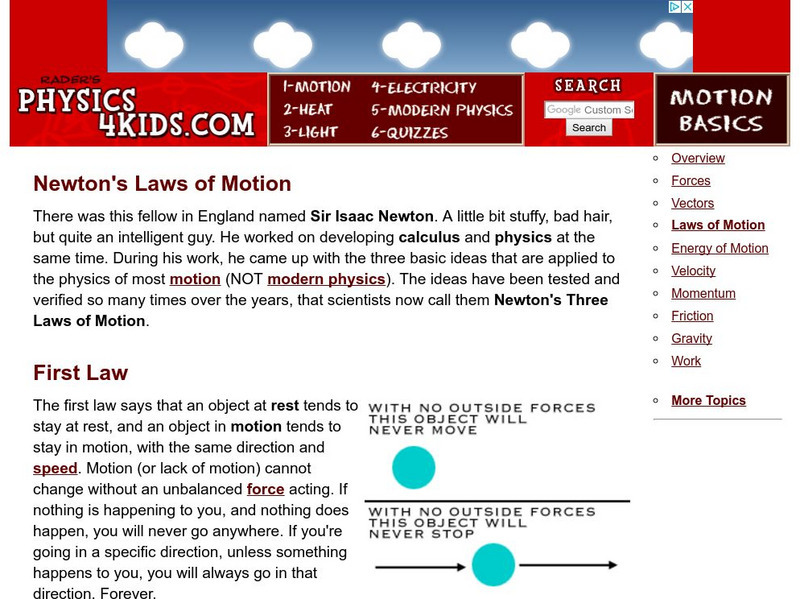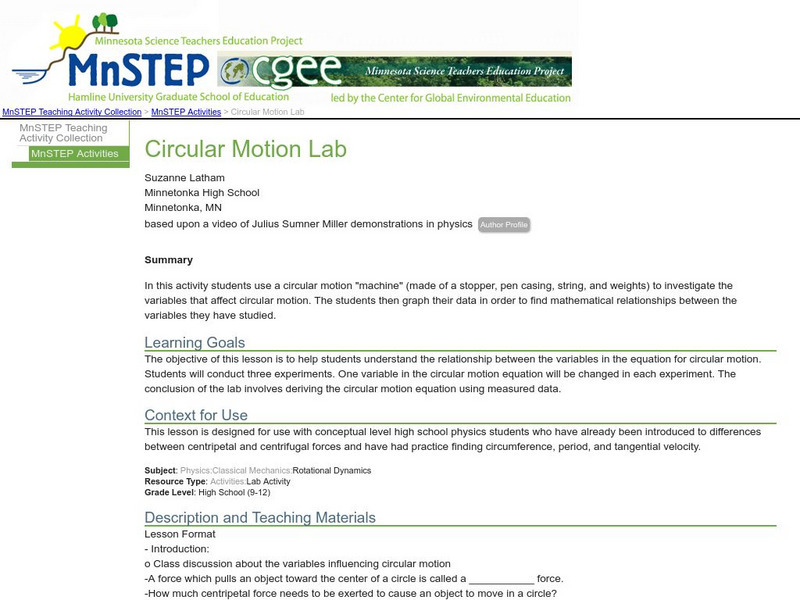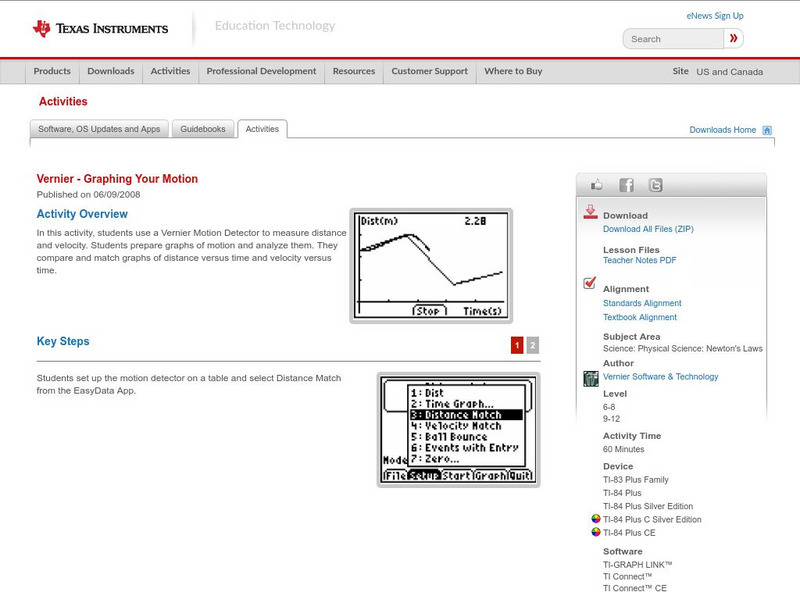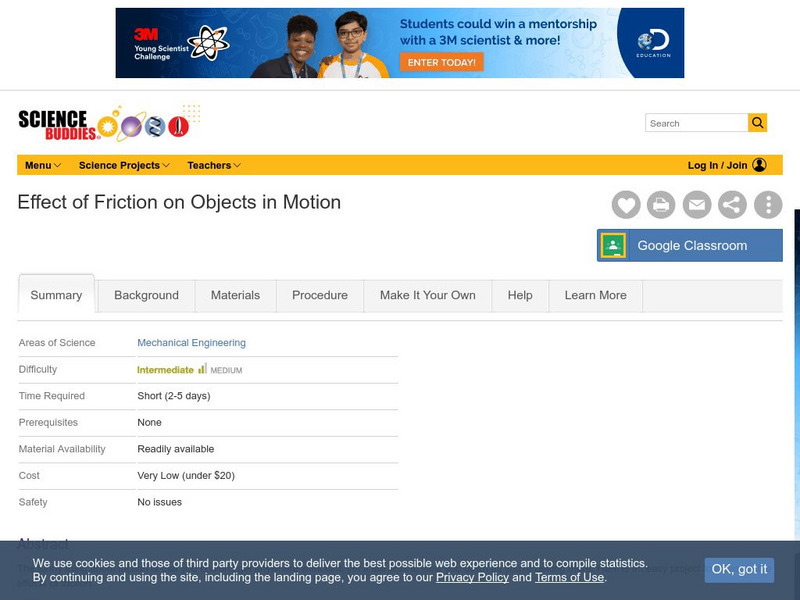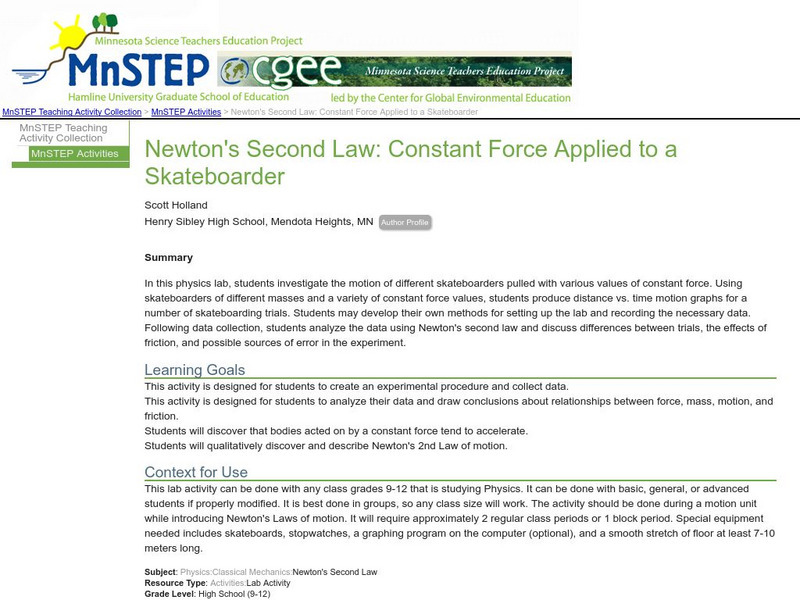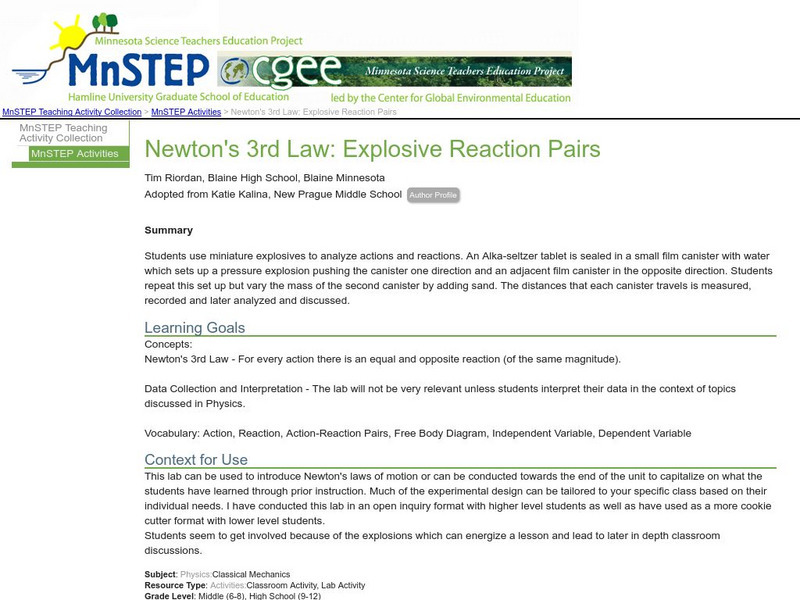Sophia Learning
Sophia: Newton's Third Law: Lesson 2
This lesson will show that when a force is exerted on an object, an equal and opposite force is produced, as stated in Newton's Third Law. It is 2 of 3 in the series titled "Newton's Third Law."
Read Works
Read Works: Sir Isaac Newton and Le Bron James
[Free Registration/Login Required] An informational text explaining how the laws of motion apply to basketball. A question sheet is available to help students build skills in reading comprehension.
Physics Classroom
The Physics Classroom: Vibrational Motion
In this article the concept of vibrational motion and its relationship to waves is introduced.
Physics4kids
Physics4 kids.com: Newton's Laws of Motion
Get a brief overview of Newton's three laws of motion. Examples with diagrams are used to explain each law. An online quiz is available to test your understanding of these topics.
Quia
Quia: Newton's Laws Quiz
A short quiz on Newton's famous laws of motion. Has ten multiple-choice questions.
Physics Classroom
The Physics Classroom: Finding Individual Forces
Explore the world of finding individual forces. "The process of determining the value of the individual forces acting upon an object involve [sic] an application of Newton's Second law and an application of the meaning of the net force."
Science Education Resource Center at Carleton College
Serc: Circular Motion Lab
In this activity students use a homemade circular motion machine to investigate the variables that affect circular motion. The students then graph their data in order to find mathematical relationships between the variables they have...
Texas Instruments
Texas Instruments: Graphing Your Motion
In this activity, students use a Motion Detector to measure distance and velocity. Students prepare graphs of motion and analyze them. They compare and match graphs of distance versus time and velocity versus time.
Texas Instruments
Texas Instruments: Slippery Slope Activity: Math & Science in Motion
This activity serves as a follow-up to Activity 6 in the Explorations book, Math and Science in Motion: Activities for Middle School by Chris Brueningsen, Elisa Brueningsen, and Bill Bower (Texas Instruments Incorporated, 1997). Students...
CK-12 Foundation
Ck 12 Exploration Series: Simulations: Physics: Everglades Airboat
[Free Registration/Login Required] Learn about Newton's 2nd Law- the relationship between force, mass, and acceleration, for a wind-powered boat.
Annenberg Foundation
Annenberg Learner: Amusement Park Physics: Roller Coaster
Learn about Newton's Laws of Physics, g-force, the causes of motion sickness, and more by reading about different rides at an amusement park.
TeachEngineering
Teach Engineering: Flying With Style
As students begin to understand the physics behind thrust, drag, and gravity and how these relate these to Newton's three laws of motion, groups assemble and launch the rockets that they designed in the associated lesson.
TeachEngineering
Teach Engineering: What's Up With All This Traffic?
Expanding on the topic of objects in motion covering Newton's laws of motion, acceleration and velocity, which are taught starting in third grade, students are introduced to new concepts of speed, density, level of service (LOS) (quality...
Utah STEM Foundation
Utah Stem Action Center: Angry Birds Are Mad About Physics
Learn about catapults and Newton's laws of motion.
Science Education Resource Center at Carleton College
Serc: Penny in Cup: Bernoulli's Principle
A demonstration that will grab students' attention to learn about Bernoulli's principle and Newton's Laws of Motion.
Utah Education Network
Uen: Rock a Bye Pendulum
Activity uses scientific process to explore the effects of force on an object in motion.
Science Buddies
Science Buddies: Effect of Friction on Objects in Motion
The funny thing about friction is that you couldn't get anywhere without it, yet it still acts to slow you down as you're getting there. Here is an easy project to measure the effects of friction.
Science4Fun
Science4 Fun: Isaac Newton
Brief biographical sketch of Isaac Newton, famous scientist whose discoveries include the law of gravitation, three laws of motion, reflective telescope, and calculus.
Upper Canada District School Board
Tom Stretton's Chemistry Pages: Dynamics Bodies in Motion
Through an online slide-show format, learn about the physics of motion, including Newton's laws of motion.
Science Education Resource Center at Carleton College
Serc: Newton's Second Law: Constant Force Applied to a Skateboarder
In this lab activity, students will become familiar with Newton's 2nd Law of Motion. By investigating the motion of different skateboarders pulled with a variety of constant force values, they will discover that bodies acted on by a...
Science Education Resource Center at Carleton College
Serc: Newton's 2nd Law: Inquiry Approach
In this activity, students test Isaac Newton's ideas on the nature of motion, in particular his 2nd Law. The emphasis is on the process of science, investigation, and experimentation, not the results. Students must come up with their own...
TeachEngineering
Teach Engineering: Newton Rocket Car
The purpose of this activity is to demonstrate Newton's third law of motion - which states that every action has an equal and opposite reaction - through a small wooden car. The Newton cars show how action/reaction works and how the mass...
Science Education Resource Center at Carleton College
Serc: Trucking and Thinking Newton's First Law of Motion
In this activity learners simulate the movement of cargo in the bed of a truck in order to experience Newton's first law of motion.
Science Education Resource Center at Carleton College
Serc: Newton's 3rd Law: Explosive Reaction Pairs
This lab can be used to introduce Newton's 3rd Law of motion - For every action there is an equal and opposite reaction (of the same magnitude). In this exercise, learners use miniature explosives to analyze actions and reactions.
Other popular searches
- Motion Newtons Laws
- Physics Newtons Laws of Motion
- Newtons Laws of Motion Sports
- Motion and Newton's Law
- Physics Newtons Laws Motion





